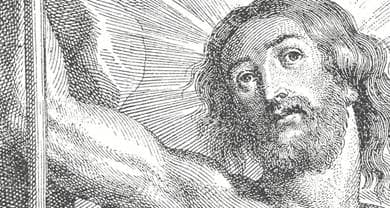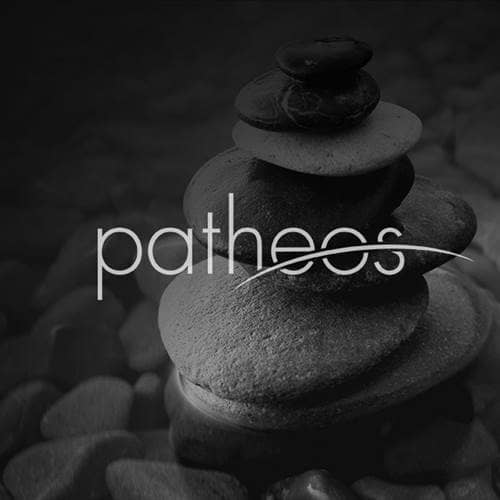- Trending:
- Pope Francis
- |
- Resurrection
- |
- Trump
- |
- Social Justice
- |
- Peace
- |
- Love

RELIGION LIBRARY
Anglican/Episcopalian
Influences
One of the defining characteristics of the spirit of early Anglicanism, perhaps the single most important, was that it was a via media, a middle way between Catholicism and Protestantism. Thus, both pre-Reformation Christianity and the Christianity of the Reformation fed profoundly into Anglican origins.
On the eve of King Henry VIII's severance of the English Church's relationship with the papacy, a prominent feature of western Christianity was the cult of purgatory, the "place" where those who die in a state of grace, but who have unforgiven venial sins, must suffer the purgation of those sins so as to be purified for entry into heaven. The purpose of the cult of purgatory was to take action in this life in ways that would shorten one's stay in that place of suffering. This could happen through various means, including indulgences, which were official Church documents usually given in recognition of a person's meritorious works, but which corrupt Church leaders had begun to sell.
Germany's Martin Luther sought to reform the Church's teachings, particularly its prevailing systems of beliefs about the afterlife. Luther rejected not only the sale of indulgences, but the ideas about salvation that led to the need for indulgences at all. Luther taught that all sins had been atoned for by the sacrificial death of Jesus Christ on a Roman cross of execution. According to Luther, further purgation was unnecessary, and therefore so were indulgences and the rest of the cult of purgatory.
Indeed, what one did had no bearing on one's salvation, for one could never do enough to merit salvation. Rather, a person could be justified before God, and therefore enjoy eternal life with God, only through the grace of God (sola gratia) received by faith in Jesus Christ and in the forgiveness of sins secured by his sacrifice (sola fide). And such faith was itself a gracious gift from God. Also noteworthy among Luther's beliefs was that the Bible alone, rather than the Bible together with the traditions of the Church, was the final authority for Christianity (sola scriptura).
Other advocates of theological reform emerged, some following Luther studiously, others drawing on his insights but moving in different directions. Among the latter were those associated with what came to be known as Reformed Christianity, some of whom were influential on Anglicanism. Among the Reformed movement's most important departures from Luther was its teaching on the Lord's Supper. Luther had taught that the Lord's Supper was a means of grace, and that the body and blood of Christ were really and bodily present in the Eucharistic elements of bread and wine, albeit intangibly. Although there was diversity among Reformed theologians, in the main they viewed the Supper as a seal of grace already conferred, and modified the notion of the Real Presence, positing instead that Christ was spiritually present only to believers through, or in conjunction with, the reception of the Eucharistic elements. This Reformed perspective on the Supper was normative in Anglicanism by the time of Elizabeth's accession.
Another distinctively Reformed teaching that was important in the development of Anglicanism was the doctrine of double predestination. This taught that God, from all eternity, predestined some people to eternal life (election) and predestined others to eternal damnation (reprobation).
All of these aspects of the Protestant Reformation proved highly influential on Anglicanism. Anglicanism teaches that a person can be saved only by grace through faith, and therefore has abandoned the cult of purgatory. Anglicanism also teaches that the Bible is the final authority for matters of Christian faith and practice, although with the necessary support of human reason and the traditions of the Church.
Where Reformed Christianity departed from Lutheran beliefs, Anglicanism tended to favor the Reformed. Though double predestination was a prominent belief in Anglicanism's formative years, the Articles of Religion are silent on this and in later generations the doctrine fell distinctly out of favor. Also, the Lutheran understanding of Christ's Eucharistic presence was a minority perspective throughout most of Anglicanism's early development, and Thomas Cranmer was strongly influenced by Reformed Eucharistic views in his composition of the Book of Common Prayer (BCP) and the Articles of Religion. It may be, however, that some believers in the real presence of Christ in the Eucharist, along lines similar to the Lutheran view, would not have found offense in later Anglican liturgical formularies. Furthermore, the emphasis on sacramental grace that began its slow emergence in the English Church in the 1590s drew in part on the thought of Lutherans.
Despite this substantial Protestant heritage, many aspects of medieval Church practices influenced, or even survived untouched in, the English Church after the Reformation. The medieval Church, in theory, traced its leadership through an unbroken line of apostolic succession back to the apostles of Jesus Christ. They laid hands on individuals and thereby consecrated them as bishops to serve local churches, these bishops laid their hands on others in consecration, and so on down through the ages. The English Church, unlike most Protestant Churches, retained episcopacy. It also kept cathedrals as episcopal seats (Latin: cathedra), and continued the cathedral practice of elaborate worship ceremonies.
Moreover, the Anglican liturgy embodied in the BCP was based on the medieval liturgy of the Mass. Indeed, many aspects of the Anglican service of worship were lifted from the medieval Mass and changed only in their translation into English, such as the Kyrie eleison ("Lord have mercy, Christ have mercy"), the gloria ("glory to God in the highest"), the sursum corda ("lift up your hearts"), and many others. On the other hand, the liturgy was changed in a Protestant direction in important ways. For example, the idea of the Eucharist as an offering to God of Christ's body and blood was eliminated, as were invocations to saints. Consequently, Anglican worship took form with striking similarities to the medieval Mass, but with Protestant content.
Anglicanism, then, displays the indelible marks of its forebears. The pre-Reformation Church, as well as the Reformed and Lutheran branches of Protestantism, had and continue to have, a voice in Anglican spirituality.
Study Questions:
1. What is meant by via media? What supports this depiction of Anglicanism?
2. Describe the relationship between indulgences and purgatory. Why did Luther reject this?
3. What did Luther believe would bring salvation to the individual?
4. How did the Reform movement influence Anglicanism? Why was this favored over Lutheran beliefs?
5. How did medieval liturgy influence Anglican liturgy? Provide examples that are still used today.










